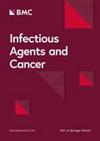Researchers should no longer delay implementation of Pap screening in low and middle income countries pending research into novel screening approaches
IF 3.1
2区 医学
Q3 IMMUNOLOGY
引用次数: 0
Abstract
A study coordinated by Groesbeck Parham and Mark Schiffman describes a novel approach to single-visit, point-of-care cervical screening and triage for low and middle income countries (LMICs) that uses an HPV screening test that is not affordable in LMICs combined with a triage test that is not available at the point of care. Pap smears are feasible, affordable, and well-suited for single-visit, point-of-care cervical screening and triage in LMICs. Research into a discredited cervical screening test, funded by the US National Cancer Institute, contributed to at least 500,000 preventable cervical cancer deaths by delaying implementation of Pap screening throughout India for 18 years. Researchers should no longer delay implementation of Pap screening in LMICs pending research into novel screening approaches. Instead, researchers should prioritize cervical screening approaches that will save as many lives as quickly as possible in LMICs. To that end, Parham et al. should implement good-quality, single-visit, point-of-care Pap smear screening in LMICs until better-quality, single-visit, point-of-care HPV screening becomes widely affordable in LMICs.在对新型筛查方法进行研究之前,研究人员不应再推迟在中低收入国家实施巴氏筛查
由格罗斯贝克-帕勒姆(Groesbeck Parham)和马克-席夫曼(Mark Schiffman)协调的一项研究描述了一种针对中低收入国家(LMIC)的单次就诊、护理点宫颈筛查和分流的新方法,该方法使用了一种中低收入国家负担不起的 HPV 筛查检验,并结合了一种护理点无法提供的分流检验。子宫颈抹片检查是可行的、负担得起的,而且非常适合在低收入国家进行单次就诊、护理点宫颈筛查和分流。在美国国家癌症研究所的资助下,对一种声誉不佳的宫颈筛查试验进行了研究,结果导致至少 50 万例可预防的宫颈癌死亡病例,而印度全国的巴氏涂片筛查工作也因此推迟了 18 年才得以实施。在对新型筛查方法进行研究之前,研究人员不应再推迟在低收入和中等收入国家实施巴氏筛查。相反,研究人员应优先考虑能在低收入国家尽快挽救尽可能多生命的宫颈筛查方法。为此,Parham 等人应该在低收入国家实施高质量、单次就诊、定点护理的巴氏涂片筛查,直到低收入国家能够广泛负担得起更高质量、单次就诊、定点护理的 HPV 筛查。
本文章由计算机程序翻译,如有差异,请以英文原文为准。
求助全文
约1分钟内获得全文
求助全文
来源期刊

Infectious Agents and Cancer
ONCOLOGY-IMMUNOLOGY
CiteScore
5.80
自引率
2.70%
发文量
54
期刊介绍:
Infectious Agents and Cancer is an open access, peer-reviewed online journal that encompasses all aspects of basic, clinical, epidemiological and translational research providing an insight into the association between chronic infections and cancer.
The journal welcomes submissions in the pathogen-related cancer areas and other related topics, in particular:
• HPV and anogenital cancers, as well as head and neck cancers;
• EBV and Burkitt lymphoma;
• HCV/HBV and hepatocellular carcinoma as well as lymphoproliferative diseases;
• HHV8 and Kaposi sarcoma;
• HTLV and leukemia;
• Cancers in Low- and Middle-income countries.
The link between infection and cancer has become well established over the past 50 years, and infection-associated cancer contribute up to 16% of cancers in developed countries and 33% in less developed countries.
Preventive vaccines have been developed for only two cancer-causing viruses, highlighting both the opportunity to prevent infection-associated cancers by vaccination and the gaps that remain before vaccines can be developed for other cancer-causing agents. These gaps are due to incomplete understanding of the basic biology, natural history, epidemiology of many of the pathogens that cause cancer, the mechanisms they exploit to cause cancer, and how to interrupt progression to cancer in human populations. Early diagnosis or identification of lesions at high risk of progression represent the current most critical research area of the field supported by recent advances in genomics and proteomics technologies.
 求助内容:
求助内容: 应助结果提醒方式:
应助结果提醒方式:


